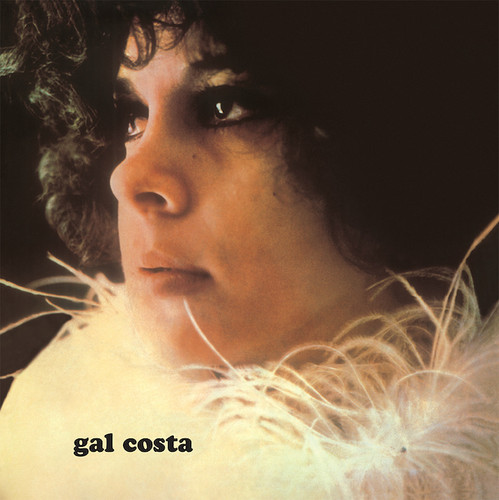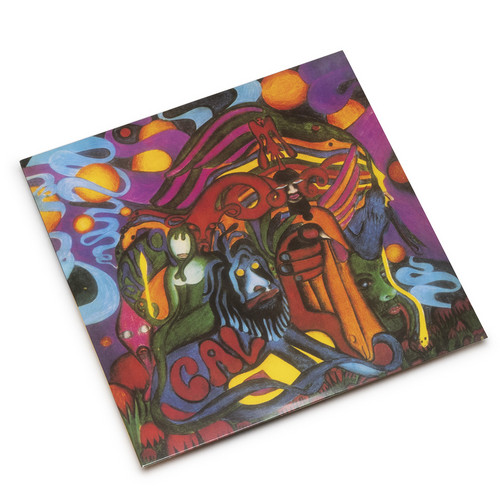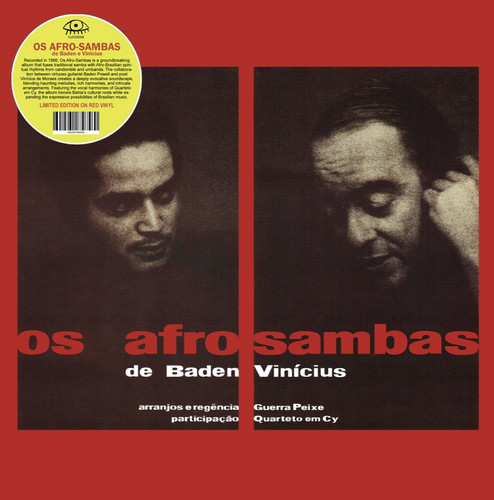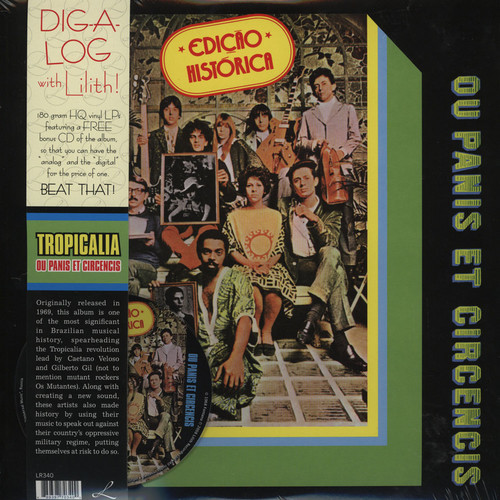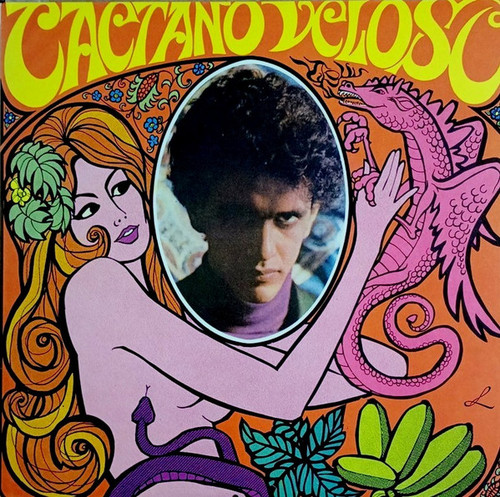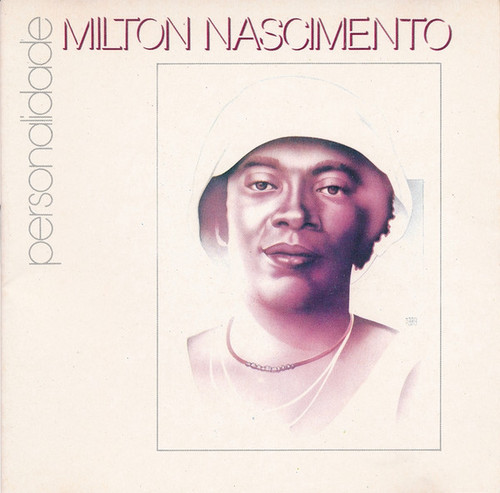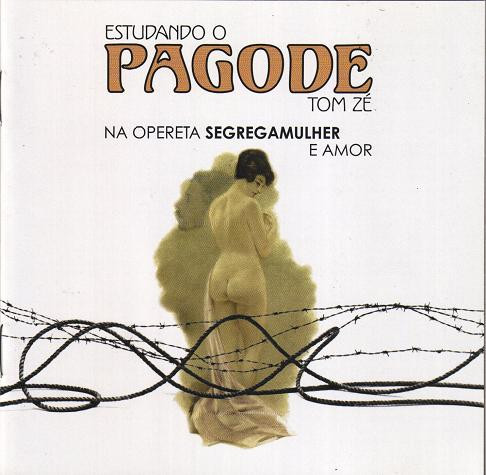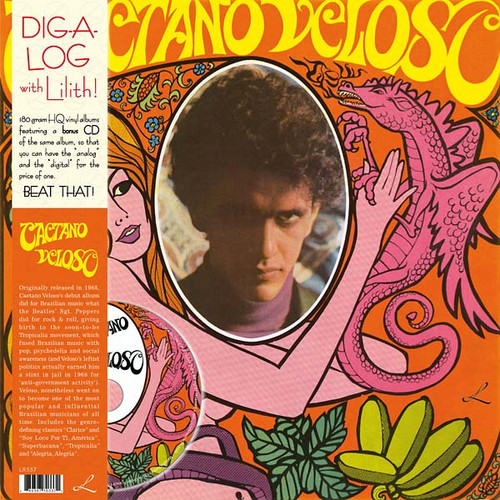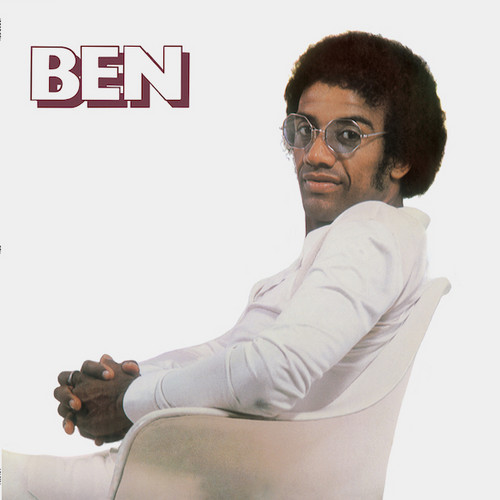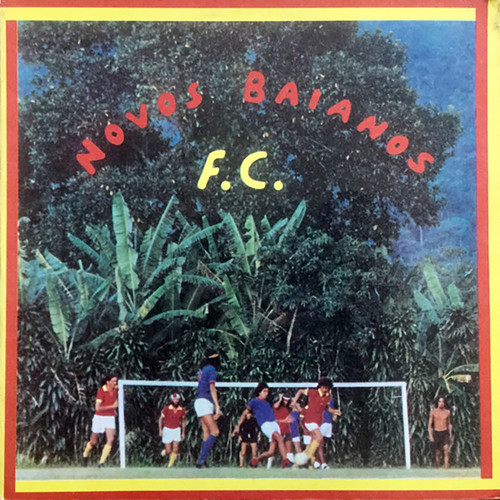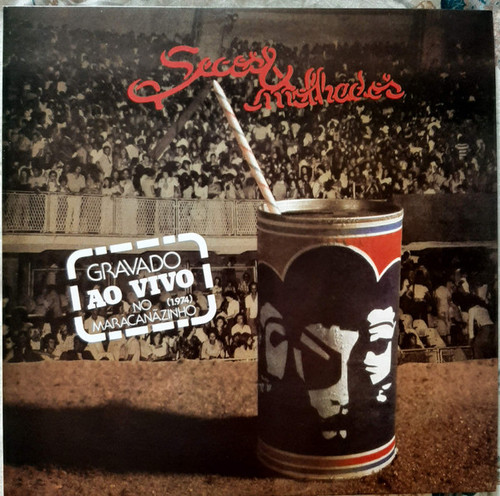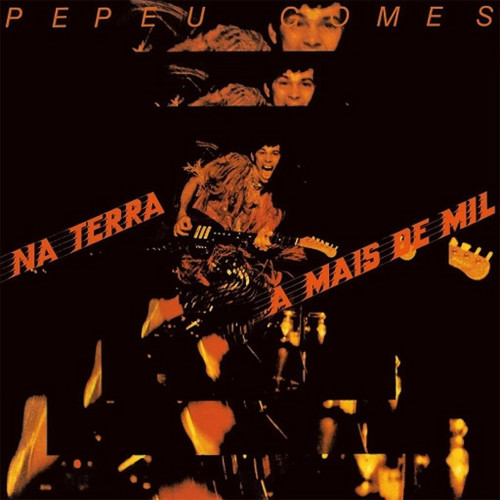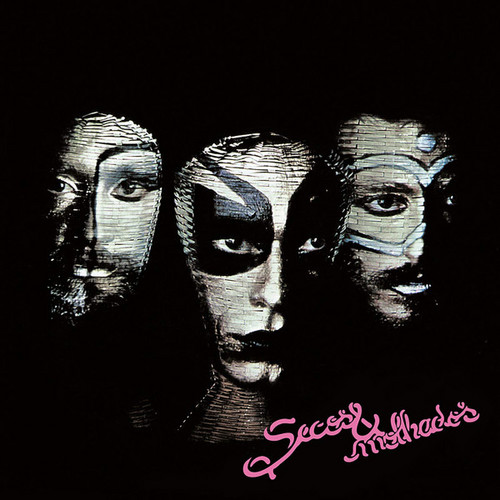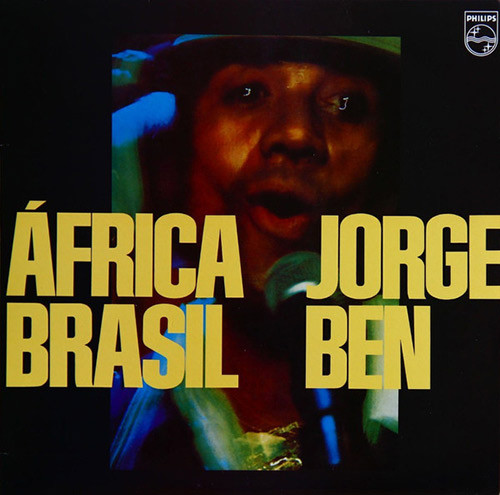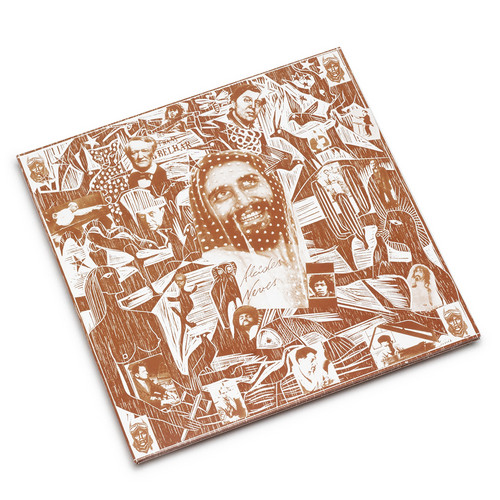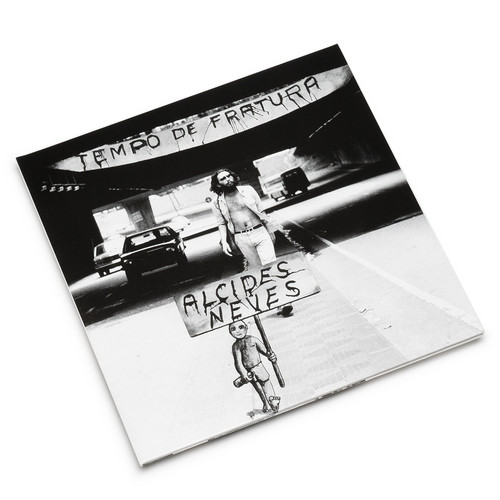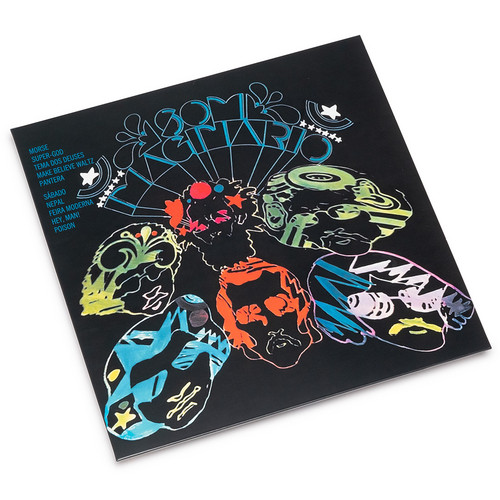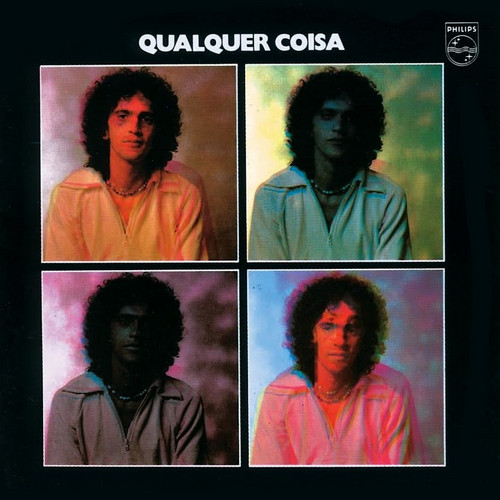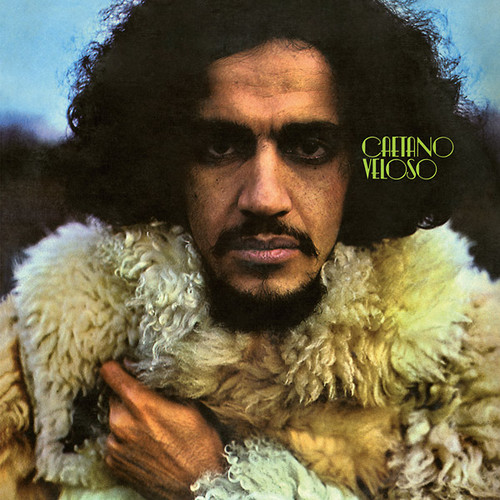Gal Costa
A lot changed between Gal Costa's pleasantly straightforward 1967 debut Domingo and her eponymous follow-up two years later. Domingo, also a debut for young Brazilian songwriter Caetano Veloso, featured a set of airy, somewhat standard bossa nova tunes, sung ably by Costa. Mere months after the release of this relatively safe debut, however, Costa and Veloso found themselves alongside Os Mutantes, Tom Zé, and Gilberto Gil, recording contributions to Tropicália: Ou Panis et Circencis, the unoffic…
Gal
*2025 repress* After Caetano Veloso broke out with his solo debut, the self-titled 1968 release recognized as the building block for the now infamous Brazilian Tropicalia movement, his friends and musical peers released similar albums, always upping the ante in terms of outrageousness and inventiveness. This release, the second of two self-titled albums released by Gal Costa in 1969, set the high watermark in terms of overall insanity and complete experimental freedom for the entire lot; not Vel…
Os Afro Sambas
Recorded in 1966, Os Afro-Sambas is a groundbreaking album that fuses traditional samba with Afro-Brazilian spiritual rhythms from candomblé and umbanda. The collaboration between virtuoso guitarist Baden Powell and poet Vinícius de Moraes creates a deeply evocative soundscape, blending haunting melodies, rich harmonies, and intricate arrangements. Featuring the vocal harmonies of Quarteto em Cy, the album honors Bahia’s cultural roots while expanding the expressive possibilities of Brazilian mu…
Tropicália Ou Panis Et Circencis
Originally released in 1969, "Tropicália: Ou Panis et Circencis" remains one of the most significant and transformative albums in Brazilian musical history. This groundbreaking collective work spearheaded the Tropicalia movement, led by Brazilian legends Caetano Veloso and Gilberto Gil, along with Gal Costa, Tom Zé, Nara Leão, and the wildly inventive Os Mutantes.
Blending traditional Brazilian sounds with psychedelic rock, avant-garde experimentation, and international pop influences, the alb…
Caetano Veloso
Originally released in 1968, Caetano Veloso's debut album did for Brazilian music what the Beatles' Sgt. Peppers did for rock & roll, giving birth to the soon-to-be Tropicalia movement, which fused Brazilian music with pop, psychedelia and social awareness (and Veloso's leftist politics actually earned him a stint in jail in 1968 for 'anti-government activity'). Veloso, nonetheless went on to become one of the most popular and influential Brazilian musicians of all time. Includes the genre-defin…
Personalidade
1987 release ** "One of Brazilian PolyGram's anthologies of homegrown music, this volume offers a cross-section of Milton Nascimento's Brazilian output from 1980 to 1985, with a side trip way back to the unforgettable tune that launched him in 1967, "Travessia." From North American rock/funk -- a live rendition of a tune dedicated to the Beatles, "Para Lennon e McCartney" -- to smooth-textured pop, lush electronic backdrops, a mournful Villa-Lobos melody ("Cantiga"), and various Brazilian backgr…
Estudando O Pagode
2006 release ** "Tom Zé has always had a knack for mixing rural, back-porch compositions with whatever technology was available to him -- giving his music a distinctive spice of the avant-garde. His tunes may be centered around the strumming of his battered acoustic guitar, but his production and mixing techniques often take his songs into a weirder world. A self-described "musical journalist," Zé isn't concerned with making you boogie as much as he is concerned with telling you what the deal is…
Tropicalia
*Back in print ! 2025 repress* "The Tropicalia art movement of the late 1960s, with flourishes in visual art, poetry, theatre and music, is one of Brazil's most adored cultural concoctions. It was a movement which began out of necessity, shortly after a repressive military dictatorship seized power after 20 years of peaceful democracy. The term Tropicalia first came from the mind of Brazilian visual artist Helio Oiticica, whose eponymous piece consisted of a sandy maze bordered by tropical Brazi…
Ben
The long unavailable ninth album by Brazilian star Jorge Ben. Released in 1972, "Ben" comes from one of Jorge Ben’s most artistically important phases, the early 70s. The album has some of Ben’s most famous songs, “Taj Mahal” (plagiarized by Rod Stewart on his song “Da Ya Think I’m Sexy?”, as the British singer admitted himself in 2012), and “Fio Maravilha”, paying homage to Flamengo’s iconic football player Fio Maravilha.
Novos Baianos F.C.
*2024 stock * After the release of “Acabou Chorare”, the Novos Baianos band moved to a farm in Jacarepaguá and recorded the excellent “Novos Baianos F.C.” there (1973). In this place they lived between music and soccer, which is why they gave the album this title. The album features 10 unreleased tracks, with the exception of “Samba da Minha Terra”, by Dorival Caymmi. Among the songs are “Sorrir e Cantar Como Bahia”, “Vagabundo não é Fácil”, “Os Pingos da Chuva” and the instrumentals “Alimente” …
Gravado Ao Vivo No Maracanãzinho
*2024 stock * Recorded live at the Maracanãzinho gymnasium in 1974 for a TV Globo special and released in 1980. Good quality considering the time and the precariousness of Brazilian technology. Lot for the improvisations and the totally Rock'n Roll feel. This phrase stolen from the band's Orkut community says it all: "If, at that time, a mother ship had landed, for example, in the Praça dos Três Poderes in Brasília and dumped some aliens through its doors, it wouldn't have caused such an impact,…
Na Terra A Mais De Mil
*2024 stock * Known throughout Brazil for his success with the group Novos Baianos, Pepeu Gomes launched his solo career with the album "Geração do Som" (1978). In 1979, after the end of the band and already considered one of the greatest guitarists in the country, Pepeu presented his first album also singing, "Na Terra a Mais de Mil" (1979). The album is now back on the shelves on 180 gram vinyl, in Polysom's "Clássicos em Vinil" collection.The album features 12 songs, all written by Pepeu with…
Secos & Molhados
*2024 stock * Vinyl LP-only repressing of this album from the Brazilian band. Formed in 1971 by Ney Matogrosso (vocalist), Gerson Conrad (vocalist/composer/violao) and Joao Ricardo (singer/composer/violao/harmonica), Secos & Molhados is inscribed in a privileged category of few bands and musicians who led Brazil from bossa nova through Tropicalia then to Brazilian rock, a style which only blossomed in the '80s. Much of the group's importance, apart from the huge success of it's first album, whic…
Caetano Veloso (Irene)
*2024 repress* Lilith Records present a reissue of Caetano Veloso's Caetano Veloso (Irene), originally issued in 1969. Although Veloso had already been thrown in jail once for his criticism of Brazil's military regime, he continued to speak out against it on Caetano Veloso (Irene), with tracks like Irene, (about a machine gun-toting outlaw celebrated by the left). No wonder he would soon find himself in political exile in the UK. The general tone of the album is in keeping with its dire message …
África Brasil
África Brasil is a 1976 release by Brazilian artist Jorge Ben. It was Ben's 14th studio album and a milestone in his career with a switch to electric guitar and funk music leaks. For África Brasil Ben reworked three of his earlier compositions: "A Princesa e o Plebeu" from Sacundin Ben Samba, "Taj Mahal" from Ben, and "Zumbi" from A Tábua de Esmeralda. The album's opening track "Ponta de Lança Africano (Umbabarauma)", a song about an African football striker, became a well known soccer-associate…
Des (Trambelhar) Ou Não
A joint release between Litoral Records and Três Selos in Brazil. One of the first independently released Brazilian records, Alcides Neves’ debut LP ‚Tempo de Fratura’ is reissued for the first time on vinyl, alongside his second release ‚Des (Trambelhar) Ou Não‘. Hailing from the Brazilian North East, Alcides Neves released his debut album a few years after moving to São Paulo, in 1979. The LP’s release coincided with the emergence of the city’s seminal Vanguarda Paulista movement, which led so…
Tempo De Fratura
A joint release between Litoral Records and Três Selos in Brazil. One of the first independently released Brazilian records, Alcides Neves’ debut LP ‚Tempo de Fratura’ is reissued for the first time on vinyl, alongside his second release ‚Des (Trambelhar) Ou Não‘. Hailing from the Brazilian North East, Alcides Neves released his debut album a few years after moving to São Paulo, in 1979. The LP’s release coincided with the emergence of the city’s seminal Vanguarda Paulista movement, which led so…
Som Imaginário
*2024 reissue* An essential psychedelic album and a must for fans of Tropicalia. Som Imaginário released a few albums during the progressive rock era which are also highly recommended but reissues are criminally unavailable.... The powerful grouping was a true academy of sound imagination: Wagner Tiso, Tavito, Luiz Alves, Robertinho Silva, Frederyko, Naná Vasconcelos and Zé Rodrix.Som Imaginário (Imaginary Music) is a Brazilian band from the 70s. They joined together to support Milton Nascimento…
Qualquer Coisa
2024 stock. Mini-LP Papersleeve Replica CD. Elemental Music proudly present a new LP reissue of Qualquer Coisa, a 1975 studio album by Caetano Veloso which was released simultaneously with the album Jóia. Qualquer Coisa differs from the more experimental modes of previous records like his Tropicália sets, or the 1973 album Araça Azul, but possesses a unique charm that makes it every bit as special as those. The set’s quite stripped-down and personal, and really has Veloso getting back to basics …
Caetano Veloso (A Little More Blue)
2024 stock. Mini-LP Papersleeve Replica CD. Following the stunning reissue of Transa (1972), Elemental Music, together with Universal Music, proudly presents a new reissue of another long unavailable gem by the one and only Caetano Veloso.
Also known as A Little More Blue or London, London, Caetano Veloso (1971) is the third self-titled album by the Brazilian genius and the first to be recorded in London, where the artist was living in exile from the Brazilian dictatorship. This masterpiece is c…
